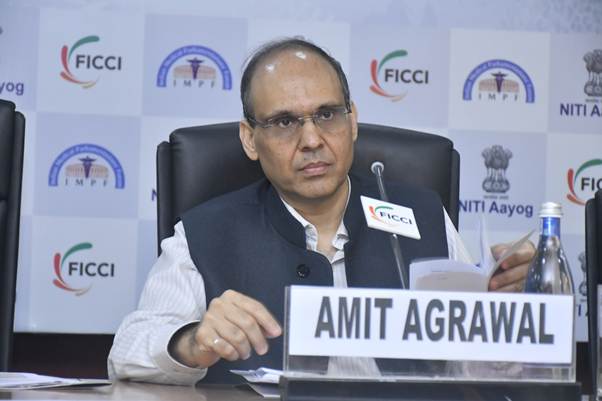New Delhi, Aug 21 (IANS) – The inclusion of rare diseases under the Production-Linked Incentive (PLI) scheme for pharmaceuticals has led to a significant reduction in treatment costs, the Ministry of Chemicals and Fertilisers said in a statement on Thursday.
According to Amit Agrawal, Secretary, Department of Pharmaceuticals, eight drugs for rare conditions have been supported under the scheme. Among them is Eliglustat for Gaucher’s Disease, where the annual cost of treatment has fallen dramatically from Rs 1.8–3.6 crore to just Rs 3–6 lakh.
Other therapies backed under the scheme include Trientine for Wilson’s Disease, Nitisinone for Tyrosinemia Type 1, and Cannabidiol for Lennox–Gastaut Syndrome, among others. Agrawal noted that such tangible cost reductions highlight the transformative impact of targeted policy interventions.
Speaking at the inaugural session of the ‘Rare Diseases Conference 2025’ at the FICCI auditorium, he stressed that while rare diseases may be uncommon individually, collectively they affect nearly 5 per cent of the population, making them a major public health challenge.
Agrawal said the issue must be viewed through a human and inclusive lens, not merely as a medical or technical concern. He recalled Prime Minister Narendra Modi’s vision of ‘Divyangjan’, urging government, industry, academia, and civil society to collaborate in easing the burden on patients and caregivers.
Citing the Prime Minister’s Independence Day remarks, he said: “We are known as the pharmacy of the world, but isn’t it time we invest more in R&D to ensure access to the best and most affordable medicines for humanity?”
He also encouraged corporates to include rare disease patients in CSR initiatives and patient assistance programmes, given the significant financial and emotional toll on families. Further, he suggested exploring special regulatory pathways and funding models to better serve the needs of the rare disease community.










